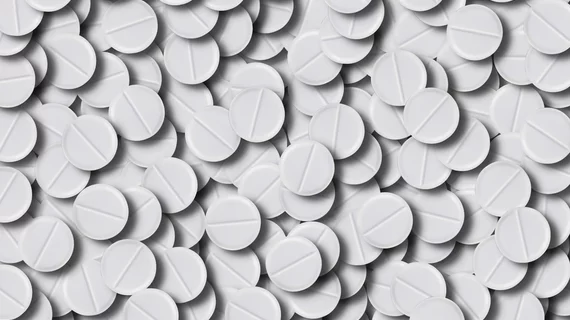Online pharmacy IDs 4th carcinogen in a BP drug
Online pharmacy Valisure on June 13 issued a letter to the FDA after in-house testing revealed dangerously elevated levels of N,N-Dimethylformamide (DMF) in certain lots of valsartan, an angiotensin II receptor blocker (ARB) commonly used to treat hypertension and heart failure.
It’s not the first time valsartan has come under scrutiny for containing higher-than-acceptable levels of a probable human carcinogen—around this time last year, the FDA joined more than 20 other countries in recalling medications containing valsartan due to trace amounts of N-nitrosodimethylamine (NDMA) in the drug. The ensuing months brought an avalanche of ARB recalls, with pharmaceutical companies voluntarily pulling NDMA- and N-nitrosodiethylamine (NDEA)-tainted batches of valsartan, losartan and irbesartan from their shelves.
Valisure, whose offices are based in New Haven, Conn., is now recommending a recall of certain lots of valsartan—including some distributed by major drug company Novartis—after routine testing detected high levels of DMF in the medication. According to Bloomberg, it’s the fourth carcinogen detected in a BP drug to date.
In a petition addressed to the FDA, Valisure raised concerns about the agency’s practices surrounding DMF, currently considered a Class 2 solvent whose involvement “should be limited in pharmaceutical products because of [its] inherent toxicity.” Unlike the World Health Organization and the International Agency for Research on Cancer, both of which reclassified DMF to Group 2A probable carcinogen status last year, the FDA has retained its status
“In the recent wave of ARB recalls due to the discovery of probable human carcinogens, it has become apparent that the switch in the manufacturing industry to the use of the DMF solvent may be largely responsible for the formation of nitrosamine carcinogens such as NDMA and NDEA,” Valisure CEO David Light wrote in the letter, noting DMF could serve to further exacerbate even low levels of NDMA or NDEA in a drug.
The FDA certainly recognizes the danger of carcinogenic compounds like NDMA and NDEA—its daily acceptable intake limits for each are 96 nanograms and 26.5 nanograms, respectively. In turn, though, the agency’s permitted daily exposure limit for DMF is 8,800,000 nanograms, 9,166,667% higher than the daily acceptable limit for NDMA.
“This data is of significant concern to medical practitioners who already struggle to prescribe safe medications and who rely on external government and private sector oversight to ensure contaminant-free drugs,” Light and Kaury Kucera, PhD, Valisure’s chief scientific officer who co-signed the letter, wrote. “Due to its discovery of significant levels of DMF contamination, Valisure’s pharmacy will no longer sell the affected lots of valsartan it has acquired, nor can it obtain a refund for these tainted products because they technically conform with the very high permitted daily exposure limit for DMF in published FDA guidance.”
According to Valisure, the FDA’s most recent revision of the regulation of residual solvents like DMF is dated July 2017.

